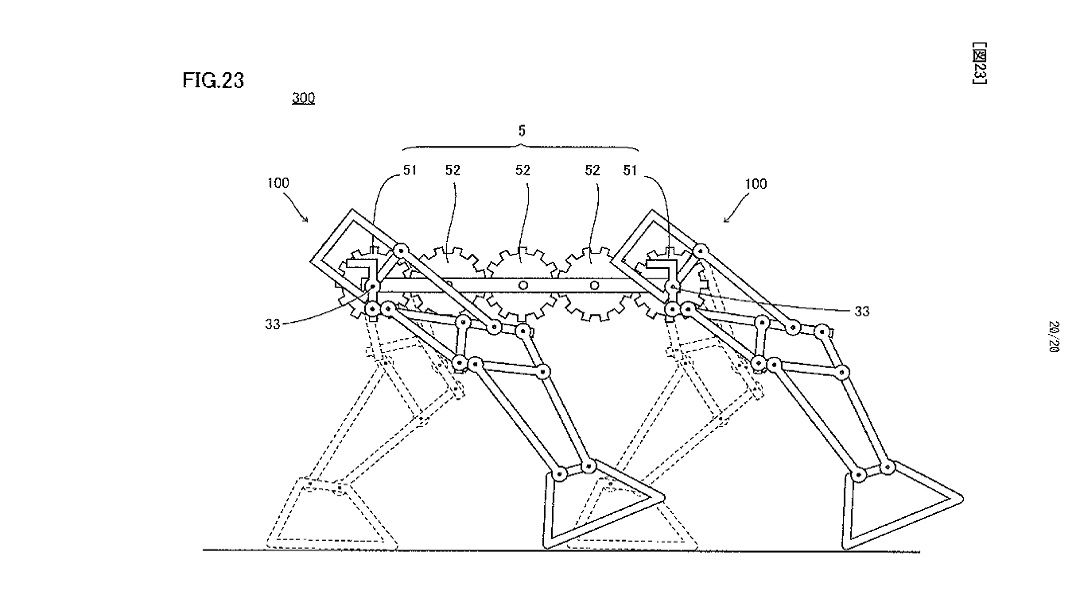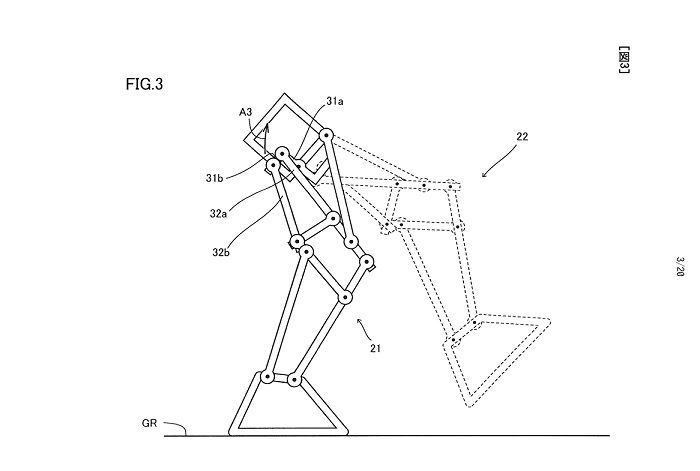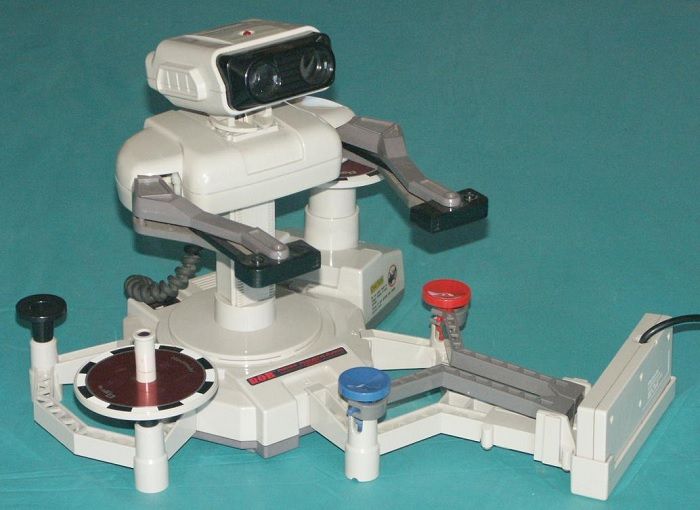On December 14, Nintendo filed a surprising international patent application for an unusual piece of robotics technology.
Nintendo's patent application is for a "Passive Walking Device and Passive Walking Module," and was published for public view by the World Intellectual Property Organization (WIPO), with whom it was filed. The technology, which resembles a pair of robotic legs, is capable of walking without a power supply - it relies solely on the power of its own weight.
By rocking back and forth as it walks, the machine is designed to maintain constant momentum, despite lacking any internal motors or computers. The machine is entirely mechanical, and powered by its own potential energy, allowing each step it takes to power the next.
Nintendo's patent application contains 20 illustrations detailing the prospective design of the invention, with variations of leg designs, and models with either two or four legs. Together, they show step-by-step positioning for each of its walking motions. While the patent documents are very clearly laid out, what is much less clear is exactly why Nintendo has decided to patent mechanical robotics technology in the first place. It seems pretty safe to guess that this is not one of Hidemaro Fujibayashi's ideas for Breath of the Wild. In fact, it's hard to see how this could fit into any of their current projects.
This is not the first time Nintendo has experimented with robotics, however. Back in the mid-1980s, Nintendo released R.O.B. (short for Robotic Operating Buddy), an accessory for their NES console. Although it had a short lifespan and only supported two games, the toy has made numerous cameo appearances in games since.
This isn't the first time in recent months that Nintendo's patents have attracted attention. Four months ago, the company lost a patent lawsuit which determined that the motion-sensing accelerometer technology in their Wii Remote controllers had infringed on the technology of iLife, a consumer robotics company. Nintendo has been ordered to pay iLife $10 million, though it has stated that it intends to challenge the verdict.



